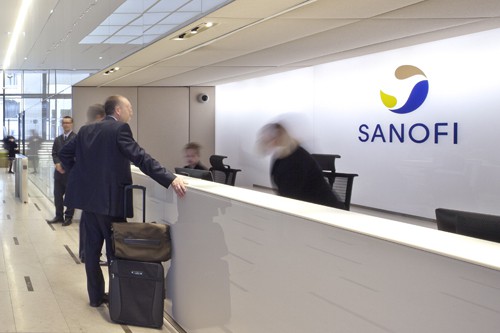
After missing out on earlier bids for Medivation and Actelion, Sanofi has agreed to buy Biogen haematology spin-out Bioverativ for $11.6bn, boosting its position in rare diseases.
Sanofi is offering $105 apiece for all of Bioverativ’s outstanding shares, which is a two-thirds premium on the US-based company’s closing price ahead of the weekend.
Bioverativ separated from Biogen last year to create a stand-alone haemophilia specialist with two marketed drugs – Eloctate (efmoroctocog alfa) and Alprolix (eftrenonacog alfa) which brought in sales estimated to be north of $1bn in 2017 – as well as a pipeline of blood disorder products.
Since splitting off from Biogen, Bioverativ has added to its pipeline by buying True North Therapeutics for $825m last May, a deal which brought in lead pipeline candidate BIVV009 for cold agglutinin disease (CAD), rare and chronic haemolytic condition that can lead to severe anaemia.
For Sanofi it is the biggest acquisition since buying rare disease specialist Genzyme for $20bn in 2011, coming after it lost out to Pfizer in a contest to buy cancer specialist Medivation in 2016 and was also trumped by Johnson & Johnson after making a play for Actelion.
In a statement the French pharma group’s chief executive – Olivier Brandicourt – said the deal “enhances its presence in specialty care and leadership in rare diseases” and will make the company “a leader in the growing haemophilia market”. He also told reporters that the company has cash available for other deals.
Sanofi needs to deliver some big new products as it faces a slowdown in diabetes sales following the loss of patent protection for blockbuster Lantus (insulin glargine) and increased competition driving down insulin prices. It’s also suffered a couple of major setbacks in its pipeline, including the failure of its dengue vaccine Dengvaxia which had been tipped as a blockbuster but is now looking more like a liability.
In the Philippines – one of the only countries to use the vaccine routinely – Sanofi has had to reimburse the cost of unused Dengvaxia and pay damages in the wake of data showing that the product could worsen the disease in some cases.
Towards the end of last year, it showcased its R&D portfolio including 71 project in the core therapeutic areas of immunology and multiple sclerosis, oncology, diabetes/cardiovascular, vaccines and rare diseases.
Sanofi notes that the haemophilia market is currently valued at $10bn and is expected to grow at a rate of around 7% per year through 2022, with a shift towards longer acting therapies such as Eloctate and Alprolix that reduce the number of injections needed by patients.
While there is a lot of excitement about the prospect of gene therapies to treat haemophilia, the company says it “believes factor replacement therapy will remain the standard of care in haemophilia for many years due to excellent safety and its increasingly superior long-acting profile”.
Buying Bioverativ does give it a stake in advanced approaches for haematological diseases however, as the biotech has an established collaboration with Sangamo Therapeutics looking at genome-editing approaches to beta thalassaemia and sickle cell disease, and gene therapy projects in haemophilia A and B with the San Raffaele Telethon Institute for Gene Therapy (SR-TIGET).




